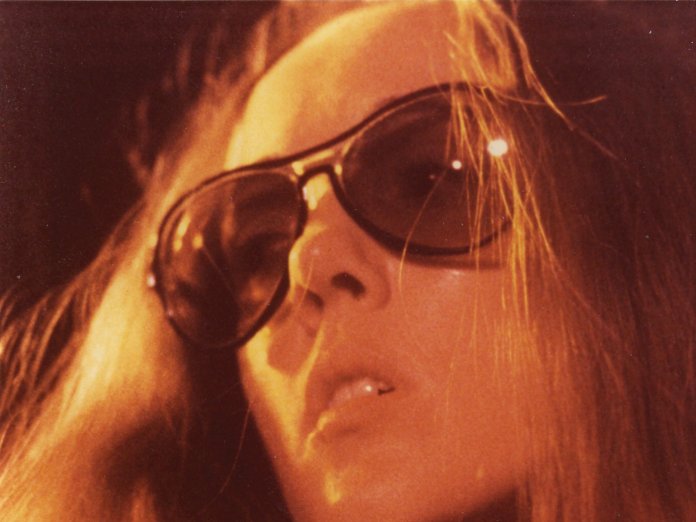When Barbara Keith, acoustic in hand, headed from Massachusetts to Greenwich Village during the height of the folk era, she became one of countless aspiring troubadours tentatively following in Dylan’s footsteps, singing folk standards at Café Wha? and Gerde’s Folk City. She fell in with a bunc...
When Barbara Keith, acoustic in hand, headed from Massachusetts to Greenwich Village during the height of the folk era, she became one of countless aspiring troubadours tentatively following in Dylan’s footsteps, singing folk standards at Café Wha? and Gerde’s Folk City. She fell in with a bunch of Café Wha? regulars, and they formed the short-lived band Kangaroo. By the time they’d scored a record deal, Keith was starting to write songs, and soon after the group dissolved, she was signed by MGM/Verve, with Peter Asher assigned to produce her self-titled 1969 debut album. Although the LP caused barely a ripple, several labels saw enough promise in the youngster to keep tabs on her.
During a brief fling with A&M in 1970, Keith had her first taste of success when her song “Free The People” was covered by Delaney & Bonnie and Barbra Streisand, dramatically increasing her visibility. Before long she was auditioning for Columbia chief Clive Davis and Warner/Reprise Chairman Mo Ostin, who personally signed Keith to a three-album deal. Producer/A&R rep Larry Marks (Gene Clark, Phil Ochs, The Flying Burrito Brothers), who’d become her co-manager, got the job of helming her LP, and his first move was recruiting the very best musicians in LA to play on it.
Ostin had signed Keith at the perfect time – or so it seemed to the Warners brass on her arrival in 1972. Joni Mitchell had just jumped to Asylum and Bonnie Raitt was just getting started, so there was a void to be filled, and the 26-year-old Keith appeared to have the goods to become Mitchell’s heir apparent. She’d grown exponentially as a songwriter and had matured into a strikingly original singer, the urgency of her delivery further enlivened by her “hummingbird” vibrato, as one critic described it. But what most distinguished Keith from her contemporaries was her utter fearlessness, which was apparent from the opening notes of the second LP bearing her name.
Who in their right mind would dare cover Dylan’s “All Along The Watchtower” after Jimi Hendrix had made it monumentally, indelibly his own? Keith didn’t just cover it, she opened the album with it, her feral vocal powering through a gauntlet formed by John Brennan’s galloping acoustic, Lee Sklar’s rumbling bassline and David Cohen’s pecking wah-wah licks. By the time Jim Keltner joins the fray, the performance has attained a sinewy ferocity. “…Watchtower”, like the bulk of the LP, was cut live off the floor, as Marks skilfully matched the players with Keith’s songs. The austere ballad “Burn The Midnight Oil No More” contains nothing more than Sklar’s bass and Keith’s regal piano amid a gossamer Nick DeCaro string arrangement. At the other extreme are “Shining All Along”, which gets a full-bodied, Band-like treatment, as Lowell George, pianist Spooner Oldham, organist Mike Utley, drummer Jim Keltner, Sklar and percussionist Milt Holland wail away in sepia-toned bliss, and the vivid road anthem “Detroit Or Buffalo”, which climaxes with pedal-steel maestro Sneaky Pete Kleinow and George conjuring a gilded rhapsody out of steel cylinders sliding over strings.
A half century later, “Free The People”, with its secular-gospel uplift, seems rooted in the era of Nixon and Vietnam, in contrast to the timeless country-folk ballad “The Bramble And The Rose” and the rousing rock anthem “A Stone’s Throw Away”. Keith had co-written the latter song with Doug Tibbles, who’d recently abandoned a successful career as a sitcom scriptwriter to try his hand at drumming for a living. He was enlisted to keep the beat during rehearsals, and it wasn’t long before Tibbles and Keith fell madly in love, turning her priorities upside down. Soon after the album was completed, she returned her advance money and blithely walked away from a career filled with seemingly limitless potential. Reprise released Barbara Keith in 1973 with zero fanfare, and among the handful of people aware of the album’s existence were singers from Valerie Carter to Olivia Newton-John, who were delighted to cover its songs.
Keith and Tibbles spent a couple of decades in LA before eventually settling back in Massachusetts, where they raised two sons and, in 1998, when elder son John was 11, formed a family band, The Stone Coyotes. Early on, Elmore Leonard became a big fan, describing the band as “AC/DC meets Patsy Cline”. He used Keith’s lyrics in his 1999 novel Be Cool, which was released with a Stone Coyotes CD sampler, and took the band on a tour promoting the book. To date, they’ve filled 16 LPs and three EPs with songs penned by the prolific Keith, who’s as energised as ever at 76. If ever an artist’s story begged to be made into a biopic, it’s Barbara Keith’s topsy-turvy saga.



